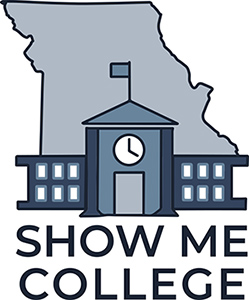Show-Me College to Build Better Resources for College-Bound Students with IDD
December 13, 2021

|
More and more students with intellectual and developmental disabilities are going to college, thanks to legislation like the Individuals with Disabilities ACT of 1975 and the 2008 Higher Education Opportunity Act, which authorized the creation of comprehensive transition and postsecondary programs, and made financial aid available.
Now, 270 university and college campuses across the U.S. have programs that offer students with disabilities opportunities to take college classes, develop careers, live independently, and take advantage of social activities on campus.
Currently, three inclusive programs are housed at universities and colleges in Missouri, the Bear POWER program at Missouri State University in Springfield, SUCCEED program at the University of Missouri-St Louis, and the THRIVE program at the University of Central Missouri.
Students with disabilities have made great strides in attending colleges and universities. But students, educators and counselors, and families still need education about the possibility of going to college.
“At the time my child was graduating high school, there was no information available” Karen Cunningham, a parent of a college graduate with a disability said. “School counselors are the gatekeepers to the next steps after high school. It would have been helpful to us if there had been information and knowledge about going to college, rather than hearsay from other parents about programs and activities we could look in to.”
Here in Missouri, plans are unfolding to expand the needed education components to students, families, and educators through the new Show-Me College website which includes resources and information about going to college in the state.
"So many students with disabilities grow up not knowing college is an option. To change those perceptions, we geared the Show-Me College website to high school students with intellectual and developmental disabilities to introduce them to the idea that they can go to college," Kate Duffy, the program's research and evaluation manager, said.
The website features Tik-Tok -like videos of students with disabilities talking about their experiences in college.
“College is a nice place to tap into what abilities you do have," college junior David Casparian said of his own experiences as a college student with disabilities. "My capabilities unlocked in college through my classes and all my extra-curricular activities. Self-discovery is exciting when you realize things that you are interested in that might never have been on your radar before you went to college."
“If I wouldn’t have gone to college, I would never have figured out that my love of sports could turn in to a job,” recent college graduate Nina Hobbs said of the opportunity college provided her as a student with a disability. “And that has made me really happy.”
There are also plans to develop webpages for family members, school counselors, and educators.
"It's about educating them that their child or student can attend a college using financial aid, take college courses and earn credentials that can help them transition to the workplace and into more independent lives," Duffy said. "At the end of the day, it's important for students and their families to know that going to college is a way for students with disabilities to learn how to navigate the world, to make mistakes, and learn to fix them, in a safe setting."
The website development will be completed during the second year of the five-year grant from the federal Department of Education. It is housed at the University of Missouri-Kansas City, Institute for Human Development.
“Going to college benefitted my child in numerous ways,” Cunningham said. “It was partly the academic achievement, but college gave her the opportunity to gain independence and self-determination, and she learned to problem-solve. And those experiences really increased her self-confidence.”







